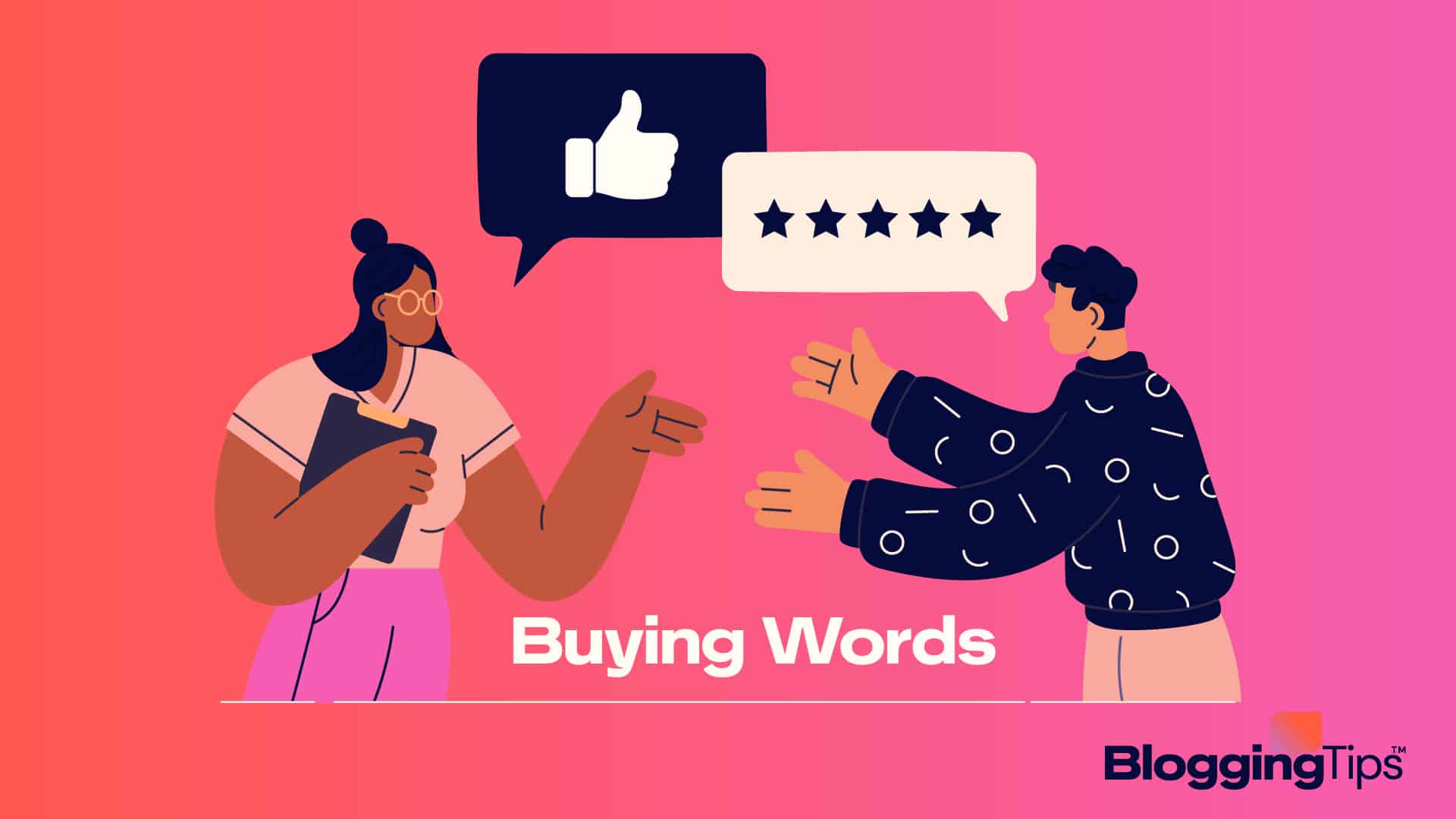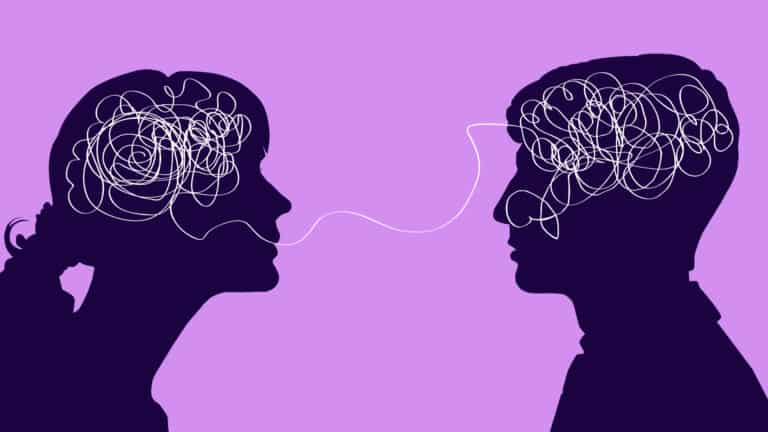Have you ever wondered why you occasionally wind up purchasing items online that you didn’t even know you needed until you suddenly realized that you did? That is the effectiveness of buying words.
When purchasing a good or service, customers use buying words as their search phrases and keywords. Indicating that they have already completed the buying cycle and are prepared to make a purchase, searchers who utilize buying words in search engines.
We’ll explain how to choose the best buying words in this article to raise conversion rates and increase sales.
- What Are Buying Words?
- How Do Buying Words Work?
- Where Do You Put Buying Words?
- How Do You Use Buying Words?
- What Words Get People to Buy?
- What Are Power Words That Sell?
- What Words Attract People’s Attention?
- What Are Good Sales Words?
- Most Persuasive Words
- Sales Trigger Words
- Frequently Asked Questions
- Wrapping Up
What Are Buying Words?
A phrase that effectively persuades readers to act in your favor is known as a “buying word.”
Since most buying terms are highly emotive, they are excellent at getting past customer resistance and persuading them to hit a link or make a purchase.
The right application of language may provoke feelings and motivate behavior. Buying words can be enticing adjectives highlighting a product’s advantages or verbs motivating a buyer to take action.
How Do Buying Words Work?
All selling phrases elicit an emotional response from the reader.
As a result, these persuasive phrases are frequently used by professional content creators in marketing to sway customers to click the “buy now” button.
The following are some examples of how the right phrase might persuade your audience:
- Fostering their goals
- Instilling a worry that something will be missed
- Making them feel beautiful
- Creating a community that people want to be a part of
- Proof of a high likelihood of success
Buying words can also make your writing more engaging and memorable for the reader because of how heated they are.
Overall, it’s advantageous for your company.
Where Do You Put Buying Words?
Buying words are typically used in strategic locations in marketing materials or websites to entice potential buyers to jump in and make a purchase.
You won’t find these words in a course or may not be included in a copywriting book.
Buying words is frequently used in the following contexts:
Landing Pages: Buying words is essential because landing pages are the first place a potential customer interacts with a product or service.
Using buying terms in headlines, subheadings, and bullet points is crucial for emphasizing the advantages of the good or service and establishing a sense of urgency.
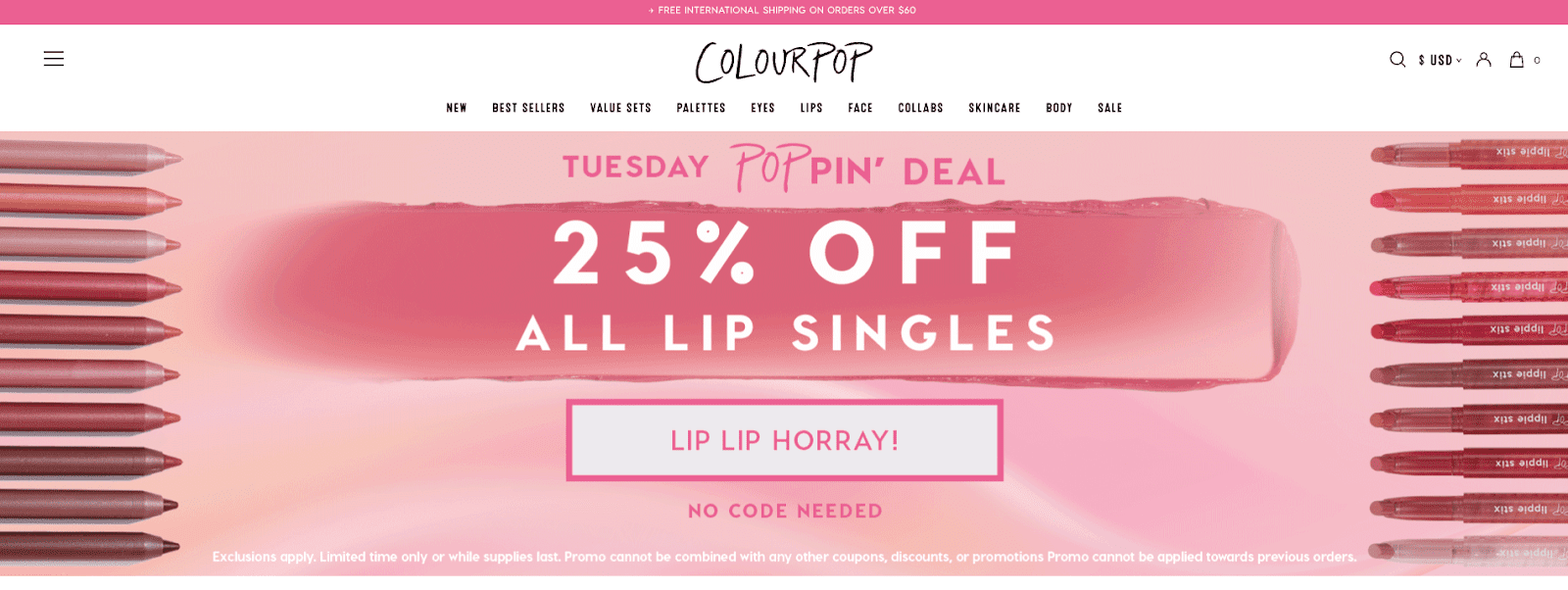
Sales Pages: The primary objective of a sales page is to turn visitors into paying clients.
The headline, subheading, main copy, and calls-to-action on marketing materials must all contain buying words to do this.
The value of the good or service and the time-sensitive nature of the offer are emphasized in these phrases.
How Do You Use Buying Words?
For businesses to sway potential customers and motivate them to act and make a purchase, they need to use persuasive language.
Businesses can employ buying words in several ways to fulfill this objective, including:
- In Content: It’s crucial to use buying words sparingly in content and to keep them genuine. Use them to entice readers to act by including them in headlines, subheadings, bullet points, and calls to action. Emphasizing the advantages of the good or service and fostering a sense of urgency should be done with buying language.
- On Sales Pages: Using buying words on sales pages needs to be done more purposely. They must be utilized in the headline, and subheading, are helpful for generating effective copies and have calls to action to elicit a sense of urgency and highlight the importance of the good or service. The language utilized should persuade and assist in dispelling any reservations potential clients may have.
- In Ads: Ads necessitate an easier approach to buying language, and the language should be convincing and elicit a sense of urgency to motivate quick action. To pique interest and compel action from potential clients, they should be employed in the headline, body content, and call-to-action.
What Words Get People to Buy?
The following are some of the most powerful buying words:
- Free: The phrase “free” strongly influences people’s decision to purchase a good or service.
- Limited: The word “limited” conveys a sense of urgency and compels action.
- Exclusive: The word “exclusive” fosters feelings of superiority and makes individuals believe they are special and one of a kind.
- Sale: Using the word “sale” conveys a sense of value and entices customers to take advantage of a special deal.
- New: The idea of something being “new” excites individuals and motivates them to attempt something new.
- Guaranteed: The word “guaranteed” instills confidence and trust in the supplied good or service.
- Easy: The term “easy” conveys a sense of simplicity and motivates individuals to achieve goals without facing any obstacles.
- Results: The term “results” fosters feelings of accomplishment and motivates people to act to get their desired results.
Effective use of these purchase-related terms can sway potential clients and motivate them to act and make a purchase.
What Are Power Words That Sell?
Power words are expressions or clauses that can pique a reader’s or listener’s interest and provoke a feeling. These phrases are frequently used in advertising and marketing to compel consumers to do a specific action, like making a purchase or registering for a service.
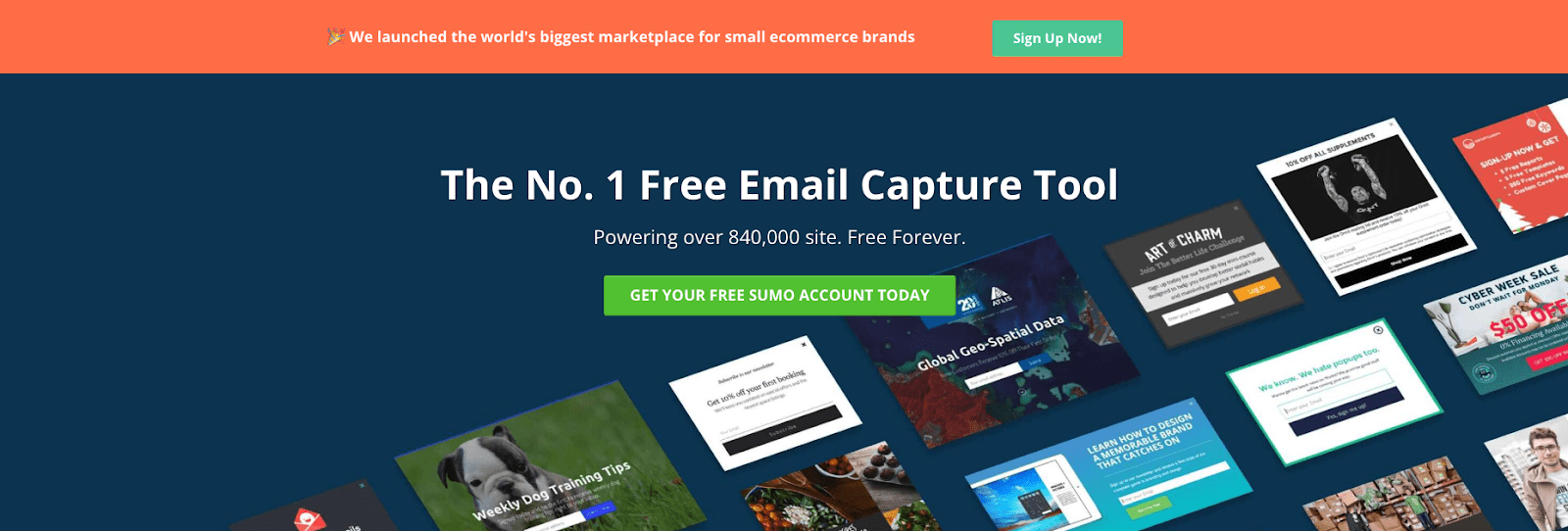
To promote a good or service, consider using the following enticing words:
- You: The term “you” can be used in marketing copy to assist the reader in feeling more involved and invested in the message. For instance, “Do you want to boost your productivity?” can be more persuasive than “Boosting productivity is important.”
- Easy: The term “easy” carries strong connotations of ease and convenience. Using this term can help make a product or service more appealing because people are frequently drawn to simple things. It may be more persuasive to say, for instance, “Our product makes it easy to manage your finances” rather than “Our product is designed for financial management.”
- Free: Using the term “free” might stimulate the reader’s interest and sense of urgency because everyone enjoys receiving free stuff. To draw customers, phrases like “Get your free trial today” or “Free shipping on all purchases” can be quite effective.
- Now: The word “now” has the power to convey urgency and motivate readers to act. It may be more persuasive to say, for instance, “Act now to receive a 50% discount” rather than “Get a 50% discount for a limited time.”
- Included: People enjoy having the impression that they are getting value for their money. The word “included” can be used to imply added value. The phrase “Our plan includes a free consultation” may be more persuasive than “We provide a consultation for an additional fee.”
- Discover: When used in a sentence, the word “discover” can stimulate and pique readers’ interests. For example, “Uncover the secrets to successful investing” may be more intriguing than “Learn about investing.”
- Value: The word “value” can be used to underline the advantages of a good or service. For instance, saying, “Our product provides great value for the price,” may be more persuasive than saying, “Our product is affordable.”
What Words Attract People’s Attention?
It’s important to use buying words strategically and in a way that accurately reflects your product or service.
Here are some buying words that can be effective in attracting attention:
Sale: The word “sale” can draw attention and elicit a sense of urgency from consumers who enjoy a good deal.
For instance, the phrase “Big sale happening now!” can be more impactful than “We have discounts today.”
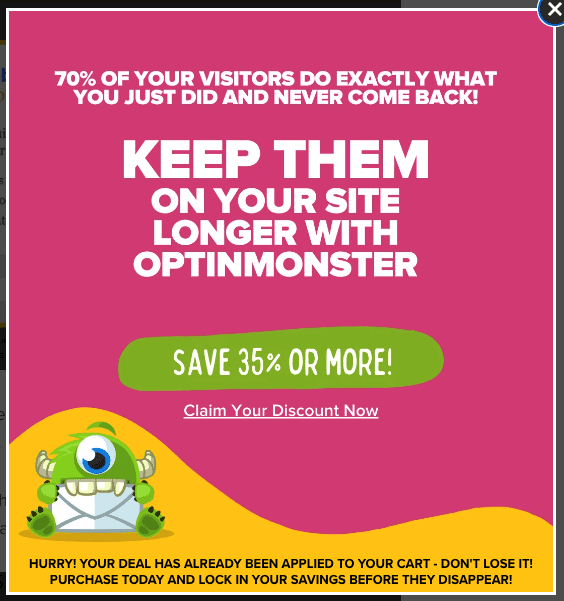
Exclusive: The term “exclusive” has the power to convey a sense of exclusivity and to make individuals feel as though they are part of a chosen group.
For instance, “Be the first to get exclusive access to our new product” may be more persuasive than “We have a new product available.”
Limited: People may feel compelled to act quickly to obtain whatever they want when the word “limited” conjures up a sense of scarcity and urgency.
It can be quite successful in drawing attention by using phrases like “Limited time offer!” or “Only a few left in stock!”
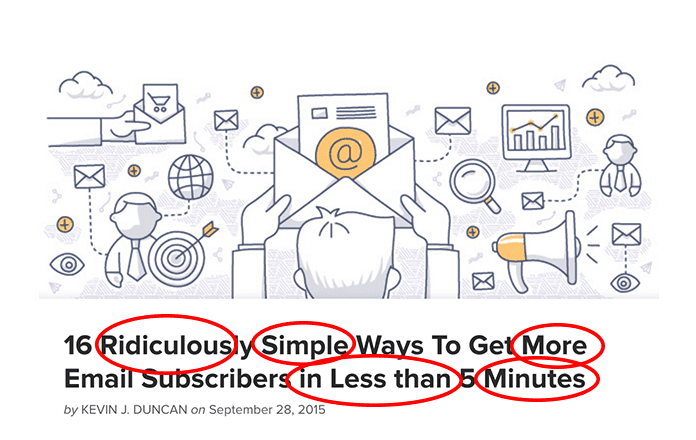
Guarantee: The phrase “guarantee” might encourage potential clients to place their trust in you and give them confidence that they are choosing wisely.
For instance, a “100% satisfaction guarantee” or “Money-back guarantee” can be quite helpful in getting consumers to buy something.
Top-Rated: The phrase “top-rated” might assist in establishing confidence and reliability because people frequently seek a social proof before making purchases.
For instance, the statements “Our brand is top-rated by industry experts” or “Customer reviews rate us as a top product” can be quite powerful in drawing attention.
Expert-Approved: The wording “expert-approved” can also expert-approved confidence and trust among potential clients.
Examples of phrases that can draw attention and motivate people to take action include “Our product is expert-approved for its effectiveness” and “Industry leaders recommend our service.”
What Are Good Sales Words?
Some of the most effective sales words include:
Imagine: Because it helps the reader picture themselves reaping the benefits of a good or service, the term “imagine” can be an effective sales tool.
The phrase “Imagine waking up refreshed every day” might be more persuasive than “Our product enhances sleep quality.”
Proven: A product or service’s track record of performance can be reassured to potential buyers by using the phrase “proven” to establish credibility.
It may be more beneficial to say, for instance, “Our approach has been backed by years of proven results” rather than “We have a new method for boosting productivity.”
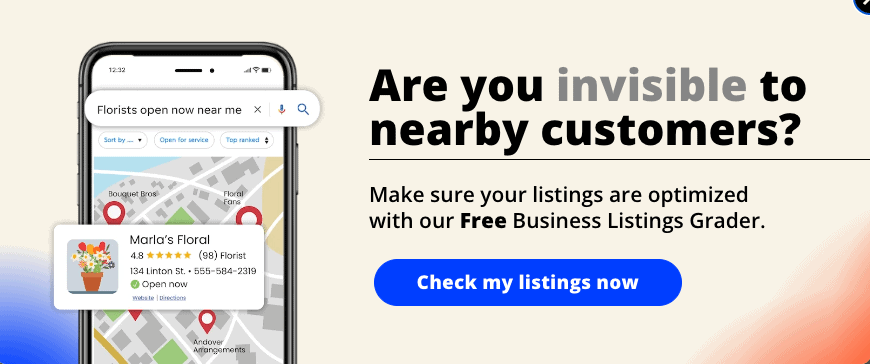
Safe: The word “safe” can be used to reassure potential customers that a product or service won’t damage them and help develop their trust.
For instance, the statements “Our product uses safe and sustainable materials” or “Our brand is safe for all skin types” can be quite helpful in persuading customers to make a purchase.
Avoid: When used in a sentence, the word “avoid” can evoke a sense of urgency and motivate readers to take action to avoid unfavorable outcomes.
It can be more beneficial to say, “Avoid expensive fixes by using our preventative maintenance service,” rather than “We offer an annual maintenance service.”
Results: Before making a purchase, people frequently want to see tangible results; thus, employing the word “results” can be quite useful in grabbing their attention.
For instance, statements like “Our solution guarantees results or your money back” or “Our product delivers clear results in just one week” can be quite powerful at getting people to take action.
Remember: The word “remember” can instill a sense of urgency and motivate individuals to act before it’s too late.
To draw attention, phrases like “Remember to grab our exclusive offer” or “Remember to arrange your appointment before we book up” can be quite effective.

Hurry: People may feel pressured to act right away if the word “hurry” is used to convey urgency.
“Hurry, the deal ends tonight! or “Hurry, only a few spots left! ” are two phrases that can be quite successful in getting customers to buy something.
Now: The phrases “Order now for free shipping” or “Sign up now to receive our exclusive newsletter” are two good examples of how to get people to take action.
Most Persuasive Words
Some of the most persuasive buying words include:
Yes: Due to its ability to elicit agreement and happiness, the word “yes” can be immensely persuasive.
The statement “Yes, you can accomplish your goals with our product” can be more persuasive than the statement “Our product might help you achieve your goals.”
The: The term “the” can be used to convey importance and distinctiveness.
As an illustration, “Find the secret to success” can be more profitable than “Discover a secret to success.”
Because: This phrase is crucial if you want to influence the reader to purchase your goods or services.
You must persuade your reader of the benefits of doing something and why they should.
Give people a compelling reason to buy what you’re selling because they rarely take action without a strong reason.
Instantly: It can be motivating to take action right away if the phrase “instantly” is used.
For instance, “Instantly improve your productivity with our method” may be more persuasive than “Our method may improve your productivity.”
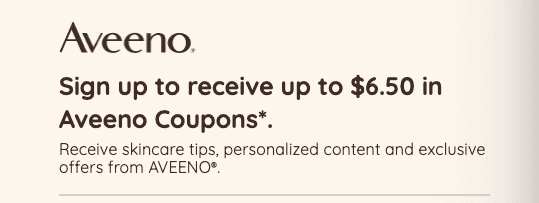
Act Fast: When used as buying words, “act fast” can elicit a sense of haste and promote quick action.
For instance, using the phrase “Act fast to take advantage of our limited-time offer” as opposed to “We have a limited-time offer available” can be more persuasive.
Sales Trigger Words
Some of the most popular and effective sales buying words include:
Save: The term “save” has a strong selling point since it gets individuals to consider their spending habits and the value they receive for their money.
“Save money with our economical service” may be more impactful than “Our product is affordable.”
Best: The word “best” can imply superiority and influence people to select one choice over another.
For instance, saying, “Our product is the best on the market,” can be more persuasive than claiming, “Our product is high quality.”
Popular: Making use of the word “popular” can be quite persuasive because people frequently want to feel like they are part of a bigger group.
It may be more effective to state that “Our service is popular among industry leaders” rather than “Our product has positive reviews.”
More: Due to the promise of receiving more value, the word “more” can be particularly enticing.
For instance, using the phrase “Get more for your money with our service” can be more powerful than just declaring, “Our service is good value.”
Stop: The word “stop” can evoke a sense of urgency and motivate people to take action in order to avoid unpleasant outcomes.
It may be more beneficial to say, for instance, “Stop wasting time with ineffective methods” rather than “We offer a new method to improve productivity.”
Start: Because it inspires people to act and bring about change, the word “start” can have a powerful, persuasive effect.
“Start the road to success with our program” may be more impactful than “Our program was created to help you succeed.”
Win: The word “win” can thrill individuals and motivate them to perform in a way that leads to a successful conclusion.
It may be more beneficial to say, “Win big with our exclusive offer,” than “We have a special offer available.”
Fix: The word “fix” has the ability to convey an impression of problem-solving and provide a resolution to a particular problem.
For instance, “Fix your health concerns with our proven method” may be more efficient than “Our method could help your lifestyle.”
Unlock: When used in a purchase, the word “unlock” might inspire people to act and open up new possibilities.
The phrase “Unlock your full ability with our fitness program” may be more impactful than the phrase “Our training regimen is designed to help you grow.”
Frequently Asked Questions
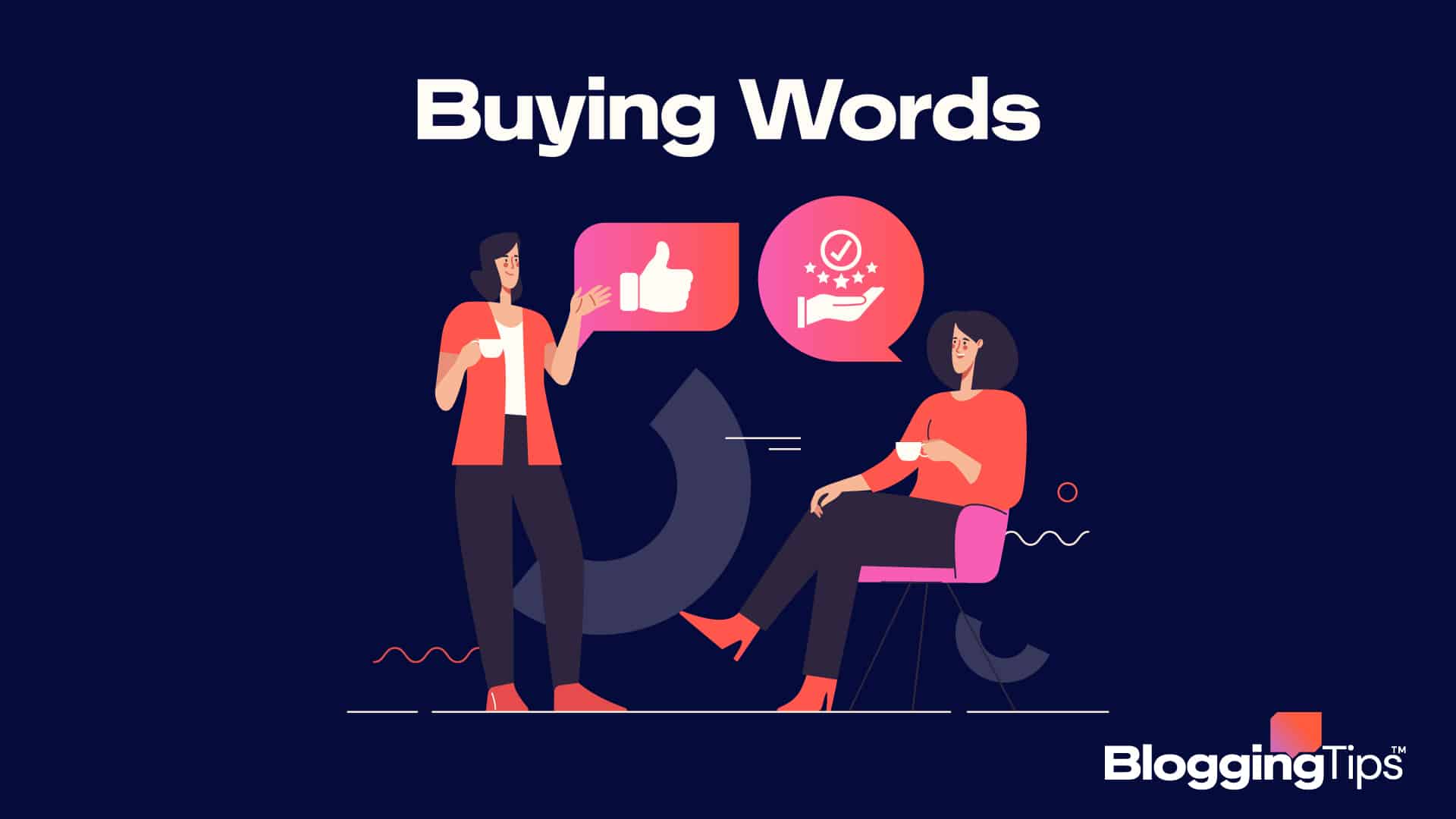
Can I Attract Online Customers with Words?
Online shoppers might be drawn in by appealing language that relates to their wants and interests.
You may sway potential customers to act and make a purchase by creating communications emphasizing the advantages of your goods or services.
What Are the Best Words that Sell?
Some of the best buying words include sale, exclusive, limited, unlock, proven, guarantee, included, value, easy, save, popular, and best.
Wrapping Up
The effect a few keywords may make in terms of audience engagement will astound you.
Sales can be significantly increased by taking the extra time to examine buying words and the emotions they can evoke while crafting copy.
Undoubtedly, one of the best ways to differentiate yourself from your rivals is to use persuasion subtly to convince your readers.
A helpful tip for creating your own list of buying words is to look at several website landing pages of some of your favorite businesses.
